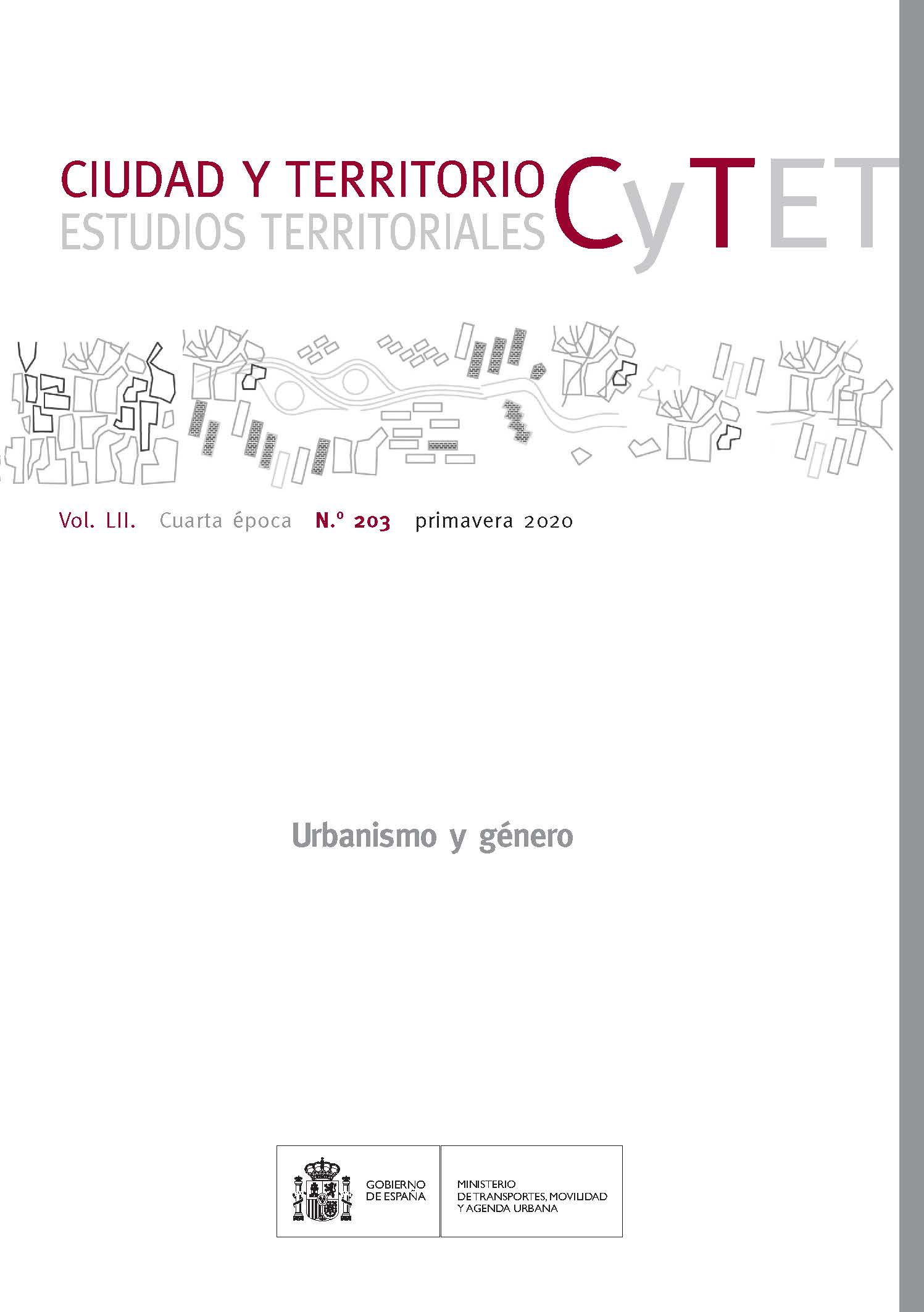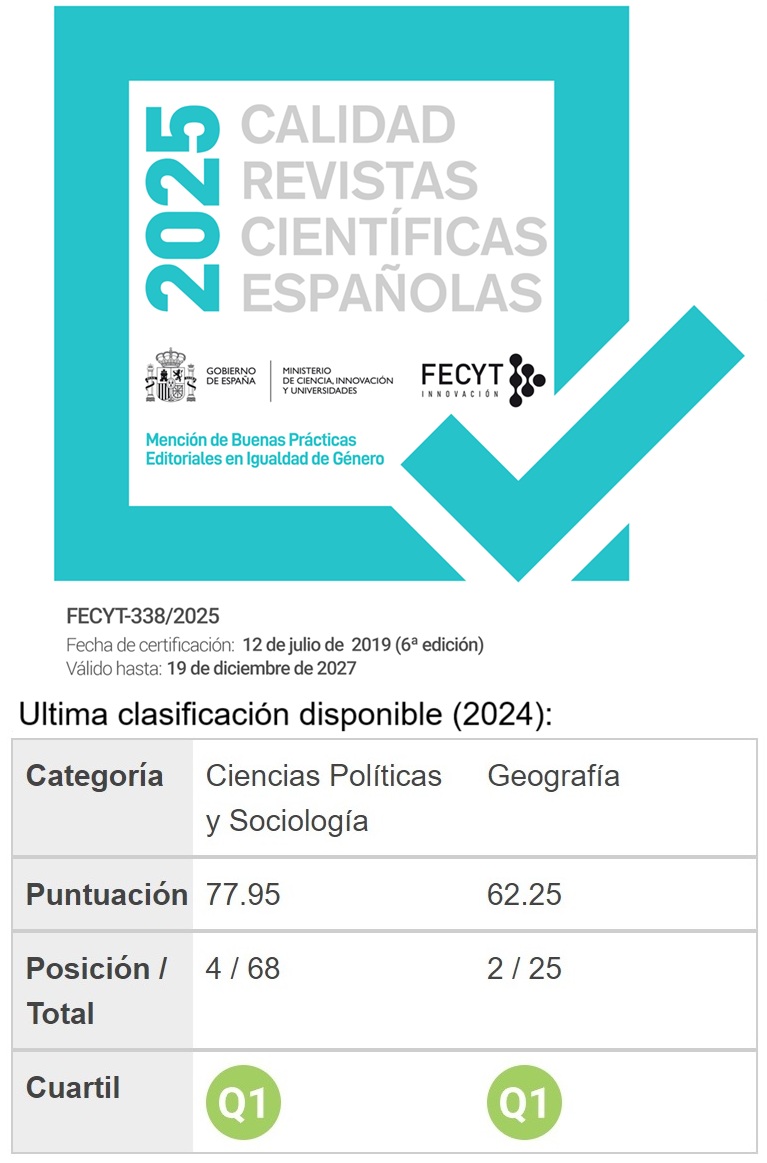El informe de impacto de género en el procedimiento de elaboración de los planes de urbanismo
DOI:
https://doi.org/10.37230/CyTET.2020.203.03Palabras clave:
Planes de urbanismo, Género, Jurisprudencia, Tribunal SupremoResumen
La problemática planteada acerca de la exigibilidad del Informe de impacto de género en la elaboración de los planes de urbanismo viene mediatizada por dos cuestiones de carácter general, a las que conviene hacer una breve, pero necesaria referencia. En primer lugar, la cuestión entronca directamente con la naturaleza jurídica de los Planes de urbanismo, esto es, la controversia jurídica nace a partir de la asimilación de los planes de urbanismo con las disposiciones generales. En segundo lugar, y desde una perspectiva más práctica, ha de ponerse de relieve, los graves problemas que la exigencia de cada vez más documentación en la elaboración de los planes, están suponiendo desde la perspectiva de sus posibilidades de impugnación y consiguiente anulación.
Descargas
Citas
Carballeira Rivera, M.T. (2016): Urbanismo con género. El Derecho de la ciudad y el territorio. (Estudios en homenaje a Manuel Ballbé Prunés). INAP.
Del Oro Pulido, M. & Suay Rincón, J.J. (Voto particular, Sentencia de 6 de octubre de 2015. Recurso de casación 2676/2012. Tribunal Supremo).
Fuertes López, M. Sentencias que anulan planes urbanísticos, 21 de junio 2017).
Ramón Fernández, T. (2017): “El contencioso urbanístico y su necesaria reforma”. Revista de Administración Pública 203.
Ramos Medrano, J.A. (2017): Actualidad jurídica ambiental, nº 73. (20 de noviembre).
Ruiz Arnaiz, G., (2017):“El Informe de impacto de género en el planeamiento territorial y urbanístico”. El Derecho, 13 de junio.
Velasco Caballero, F., (2018):“Informe de impacto de género y planeamiento urbanístico: Cuando el TSJ de Madrid crea exigencias procedimentales” (11 de septiembre).
Publicado
Cómo citar
Número
Sección
Licencia
Derechos de autor 2020 César TOLOSA-TRIBIÑO

Esta obra está bajo una licencia internacional Creative Commons Atribución-NoComercial 4.0.
Sin perjuicio de lo dispuesto en la legislación vigente sobre Propiedad Intelectual, y conforme a la misma, el/la los/las autor/a/es/as que publiquen en CyTET cede/n a título gratuito, de modo no exclusivo y sin límite temporal al Ministerio de Transportes, Movilidad y Agenda Urbana los derechos para difundir, reproducir, comunicar y distribuir en cualquier formato actual o futuro, en papel o electrónico, la versión original o derivada de su obra bajo licencia de Creative Commons Reconocimiento-NoComercial-SinObraDerivada 4.0 Internacional (CC BY-NC-ND 4.0), así como para incluir o ceder a terceros la inclusión de su contenido en índices, repositorios y bases de datos nacionales e internacionales, con referencia y reconocimiento en todo caso de la autoría del mismo.
Además, al realizar el envío, el/la los/las autor/a/es/as declara/n que se trata de un trabajo original en el que se reconocen las fuentes que han sido utilizadas en su estudio, comprometiéndose a respetar la evidencia científica y a no modificar los datos originales para verificar o refutar una hipótesis de partida; que el contenido esencial del mismo no ha sido publicado previamente ni se publicará en ninguna otra obra o revista mientras esté en proceso de evaluación en la revista CyTET; y que no se ha remitido simultáneamente a otra publicación.
Los autores deben firmar un Formulario de Cesión de Derechos, que les será enviado desde la Secretaría de CyTET una vez se acepte su artículo para ser publicado.
Con el objetivo de favorecer la difusión del conocimiento, CyTET se adhiere al movimiento de revistas de Open Access (OA) y entrega la totalidad de sus contenidos a diversos índices, repositorios y bases de datos nacionales e internacionales bajo este protocolo; por tanto, la remisión de un trabajo para ser publicado en la revista presupone la aceptación explícita por parte del autor/a de este método de distribución.
Se anima a las/os autoras/es a reproducir y alojar sus trabajos publicados en CyTET en repositorios institucionales, páginas web, etc. con la intención de contribuir a la mejora de la transferencia del conocimiento y de la citación de dichos trabajos.








 Enlace a CyTET en Linkedin
Enlace a CyTET en Linkedin